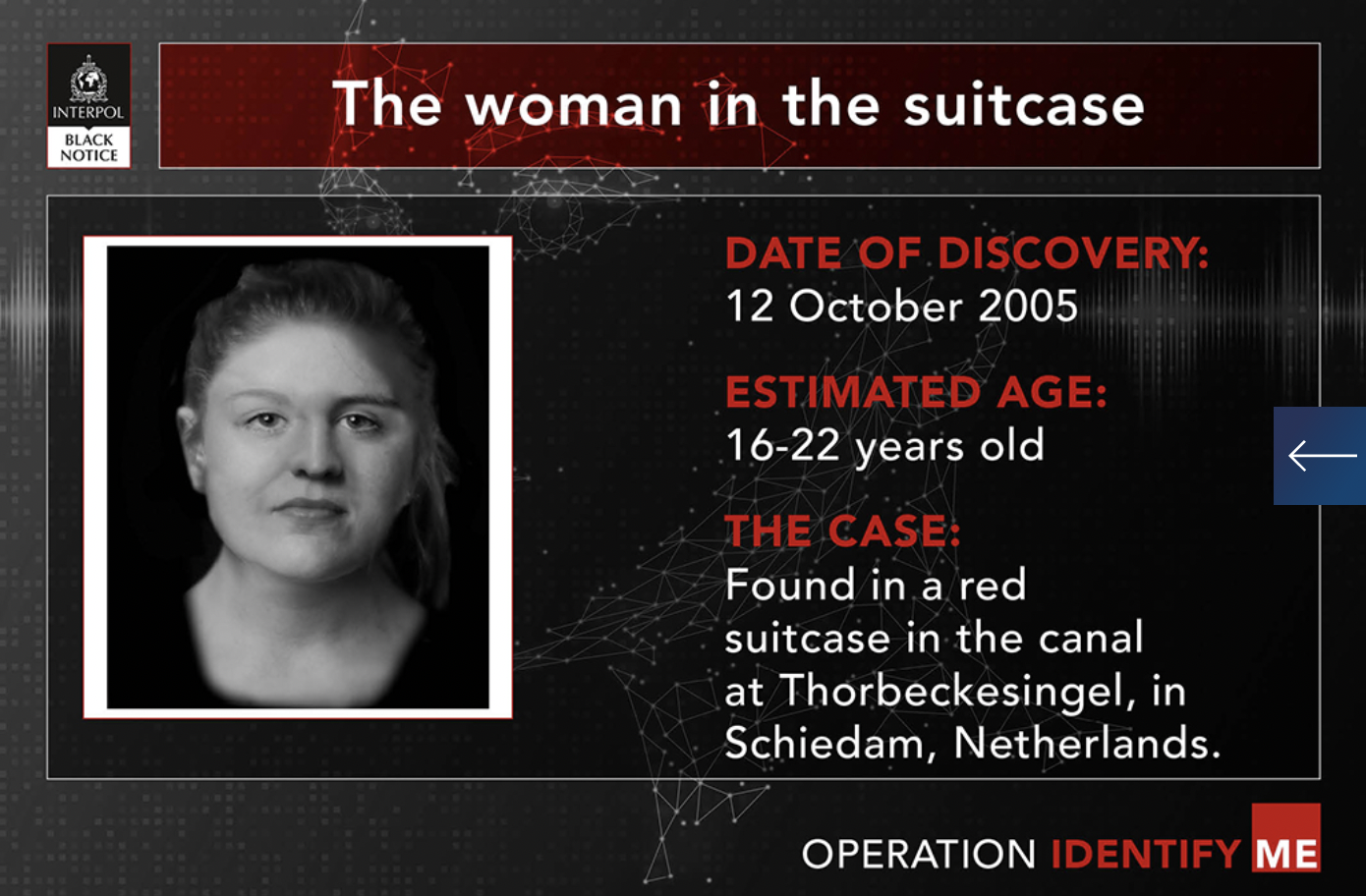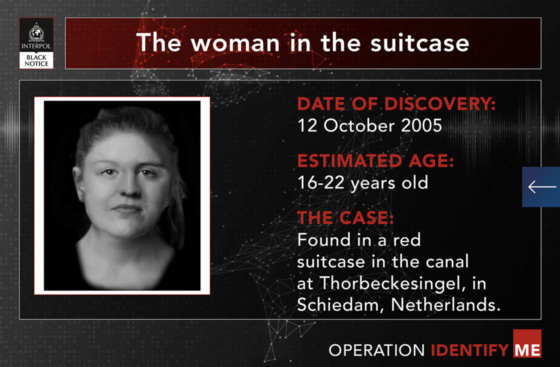Police try to identify 22 murdered women in cross border operation


Dutch, Belgian and German police have launched a joint campaign together with Interpol to try to identify 22 women who are believed to have been murdered in the last 50 years.
Details on each case have been made available on www.interpol.int/IM, showing facial reconstructions of some of the murdered women, as well as videos and pictures of jewellery and clothing which were discovered at sites where the women’s remains were abandoned.
It is the first time Interpol has issued ‘black notice’ details about the cases, a police notification system which includes all details that might help to identify the victims.
Nine of the 22 cases involve women whose bodies were found in the Netherlands, including a young woman wearing a distinctive bracelet who was found in a ditch in Amstelveen in 1995 and a woman who died in a houseboat fire in Amsterdam in 1998.
The oldest case on the list is that of a teenage girl whose body was found in a car park on the A12 in 1976. Research suggests she came from Germany or an area around the border with the Czech Republic and that ‘she may have known a period of malnutrition, probably during the last 14 months of her life.’
The initiative is also supported by actors, singers and sports women from the three countries, with actress Carice van Houten and singer S10 backing the Dutch effort.
‘Most of the 22 victims died violently, and some were also abused or starved before they died,’ Dutch police spokesmen Carina van Leeuwen and Martin de Wit said in a press statement.
Police think the women are likely to have come from other countries and their bodies may have been dumped to hinder police investigations. In particular, some may have come from Eastern Europe, police say.
People who remember a missing friend or family member are being asked to check the listings and contact the relevant police team if they have any information.
Thank you for donating to DutchNews.nl.
We could not provide the Dutch News service, and keep it free of charge, without the generous support of our readers. Your donations allow us to report on issues you tell us matter, and provide you with a summary of the most important Dutch news each day.
Make a donation